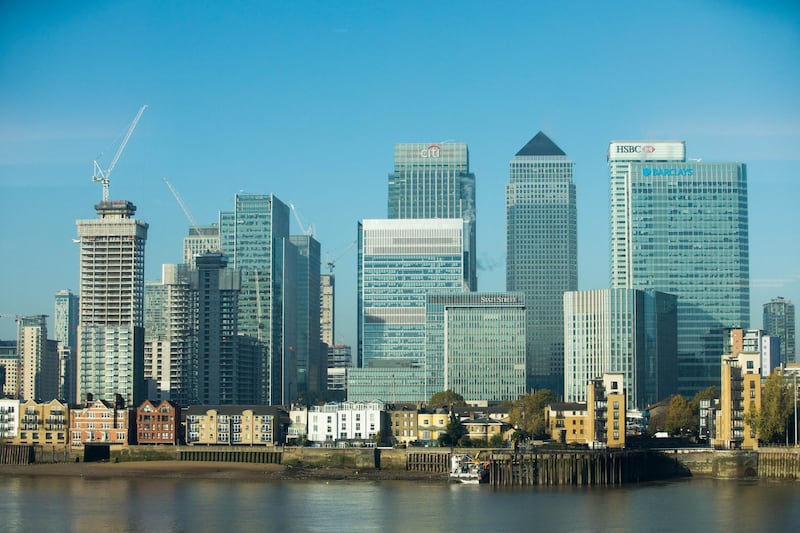European officials outlined a series of temporary measures to keep flights going and goods moving in and out of Britain if London quits the EU without a deal in March.
Brussels dashed hopes among some Brexit hardliners that the two sides could agree a short term arrangement by stating it would put in place its own arrangements without further negotiation with London.
The package of contingency plans would allow British planes to continue flights into and out of the EU. Other rollover arrangements included: A green light for truck movements for transport of freight. Limited financial and banking recognition. Temporary visa arrangements for British passport holders.
Crucially the plan states the measures would only last six to nine months.
The announcement came just a day after Britain announced it was doing its own "no-deal" planning and would add £2 billion to spending on contingency measures.
Amid deadlock over Theresa May's proposed withdrawal agreement with the EU, the prospect of a so-called hard Brexit has become a likelihood by default. A number of Mrs May's Conservative colleagues have warned they would quit the party whip if the government presses ahead with a no-deal and sterling has come under renewed selling pressure over the damage to the economy.
British businesses on Wednesday issued a joint plea to Theresa May’s government to avoid a no-deal Brexit, warning that there is “not enough time to prevent severe dislocation and disruption” before the deadline in March.
The Confederation of British Industry, British Chambers of Commerce, Federation of Small Businesses, Institute of Directors and the EEF manufacturers' association said on Wednesday their members have been “watching in horror” as the UK approaches a no-deal scenario.
“Politicians have focused on factional disputes rather than practical steps that business needs to move forward,” a heavily critical statement released by the five organisations read.
"The lack of progress in Westminster means that the risk of a no-deal Brexit is rising."
The groups, which represent hundreds of thousands of businesses between them, said companies large and small are putting costly contingency plans in place, but many would not be ready in time if the UK crashed out of the EU without a deal on March 29.
“Firms are pausing or diverting investment that should be boosting productivity, innovation, jobs and pay into stockpiling goods or materials, diverting cross border trade and moving offices, factories and therefore jobs and tax revenues out of the UK,” they said.
The statement asked MPs to return to their constituencies over the Christmas break, talk to local businesses and listen to their concerns.
Businesses have been watching in horror as politicians have focused on factional disputes rather than practical steps that business needs to move forward. Joint statement by @britishchambers @CBItweets @EEF_Press @fsb_policy @The_IoD pic.twitter.com/yu99DRP0Lp
— CBI (@CBItweets) December 19, 2018
The plea from the five businesses associations comes as Mrs May met with her cabinet on Tuesday to step up preparations for a no-deal scenario, despite giving assurances that the deal she will put before parliament in January is her first priority.
As part of this preparation, HMRC is creating a 100-page document to guide British businesses through preparing to send up to 80,000 emails to support them.
Some of Mrs May’s ministers, however, are in favour of a “managed no-deal” which would involve the government paying back owed cash to the EU to secure a transition period. This approach is backed by Brexiteers Andrea Leadsom and Penny Mordaunt, but is viewed as “not a credible proposition” by the five businesses associations, who warned of dire consequences.
“With just 100 days to go, the suggestion that ‘no-deal’ can be ‘managed’ is not a credible proposition,” they said.
“Businesses would face massive new customs costs and tariffs. Disruption at ports could destroy carefully built supply chains. From broadcasters, to insurance brokers, to our financial services - the UK’s world-leading services sector will be needlessly disadvantaged, and many professional qualifications will be unrecognised across the EU.”
On Tuesday, former Brexit secretary Dominic Raab told The Telegraph newspaper that he believed the government should offer tax breaks to business at risk of harm from Brexit.
"The Treasury must prepare a Brexit budget to identify businesses - including 'just in time' manufacturers - most at risk from a departure on WTO World Trade Organisation terms,” he said.
“We should cut business taxes to boost them as they transition, and offset the cost from the £39 billion the UK would have paid the EU."






